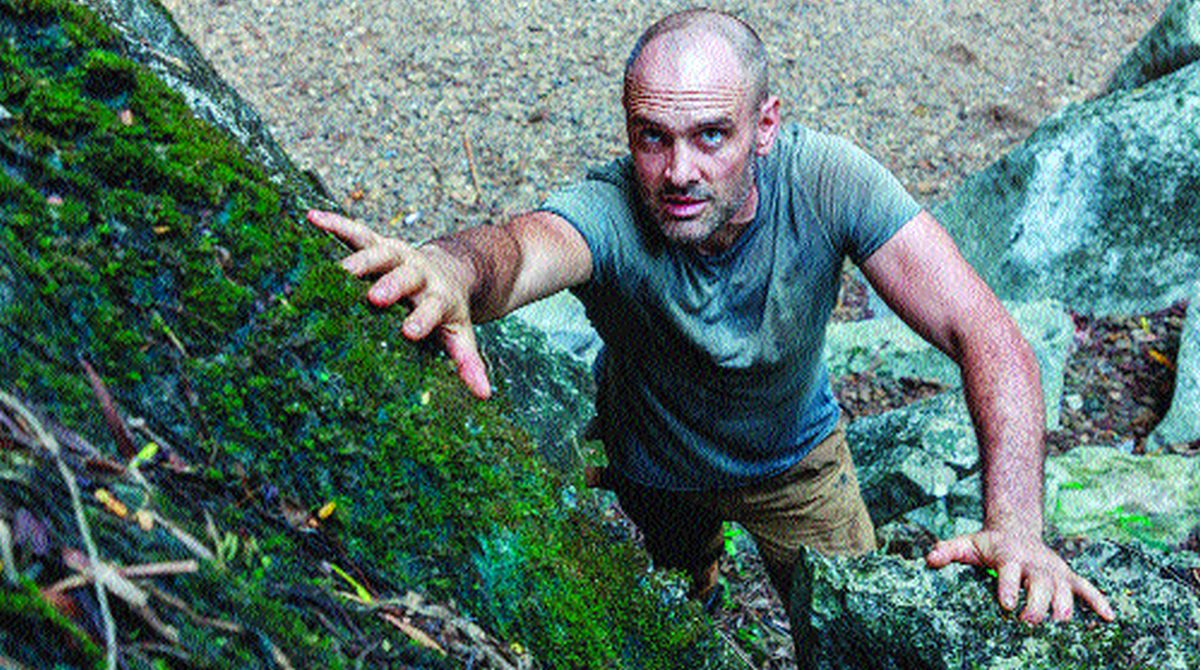PM hails Gujarat for Guinness World Record for Surya Namaskar
PM urged everyone to make Surya Namaskar a part of their daily routine due to its immense benefits.

A proud holder of the Guinness World Record for being the first human ever to walk the length of the Amazon River, Edward James Stafford is an English explorer. Popularly known as Ed Stafford, people can catch his wild escapades in the series Ed Stafford: Left for Dead, at some of the planet’s most extreme environments.
On the move without food, it takes just 10 days for the human body to start to shut down. So, that’s how long Stafford is giving himself to escape the subtropical forests, parched deserts and desolate mountains that await him. All he had is his camera and a team watching from afar. He tries to break flee from dangerous environments without any survival tools. Using only natural navigation, Stafford relies on his wits and survival skills to make split-second decisions as he travels without basic survival gear. Excerpts:
Advertisement
Q How did the idea behind walking the length of the Amazon come about?
I was in my early 30s, and I didn’t have any wife or kids and I really wanted to do something incredibly challenging and ultimately make my name as an explorer. I was in the lucky position of having experienced enough to take on something big and dangerous without too much responsibility, and this presented a task that had never been completed before — a world first.
Q What draws you to the remote places that you choose?
I’ve planted myself on a desert island for months with just a camera, trekked across the largely inhospitable Mongolian Altai mountains and survived in the Atacama, which at times felt how I had imagined life on Mars will be like! We live in a world where it’s so easy to try and understand yourself based on the people around you and, more than ever, via social media. Even if it’s for a short time, travelling alone is a great thing for everyone to experience. Put yourself in a foreign country where you have to stand on your own two feet and see how capable you are of looking after yourself.
Q Where did you learn the survival strategies that you possess?
I was a captain and an expedition leader in the Army and Cub of the Year in 1985. Actually, a lot of the strategies I use I learned through some aboriginal friends I made a few years ago. They’ve traditionally spent a lot of time walking the land and being close with nature and they’ve learned to work in tandem with it.
Q What are some of the greatest difficulties faced by you in the expeditions?
People! During the Amazon adventure I was held up at gunpoint by drugs traffickers in the Red Zone in Peru — they thought I was a journalist reporting on their illegal activities — and I was also held at arrow-point by Asheninka Indians. Outside of that trip, there was a notable day in Okavango Delta where I nearly came face to face with a hippopotamus. I looked up and a two-tonne hippo was sniffing my fire only a few feet away. I filmed it for about 10 seconds and then escaped up a tree, as hippos are said to be the biggest killer in Africa and I wasn’t taking any chances.
Q What were some of your most memorable moments in the expeditions?
When walking the Amazon, there was a moment that I finally felt jungle-competent. Myself, Cho and his little team got into a good system of fishing, collecting firewood and essentially surviving. The comfort of feeling as though you’re getting to grips with an area so remote is great. However, there were times when we had no food, no GPS and just a compass. We were feeling lost, hungry, exhausted and really out on a limb when we found a tortoise. We had made it a policy not to hunt, but that tortoise jerky saved us and I’ll never forget that.
Q What can viewers expect from the show First Man Out?
First Man Out is a survival-off between the best international survival experts in incredible and remote locations. I face a different expert each episode and they have all been humble characters so far, who genuinely want to push themselves and learn and grow, so it’s been a very positive experience for all involved.
Q What are your future plans?
I’ve only just finished months of gruelling survival challenges and filming, so I think it’s definitely time for a break and some family time. Before I went away, my wife Laura was on an expedition kayaking the Essequibo River and obviously we’ve got to spend time with our young son too. I’d imagine that it will be a case of itchy feet after a short time off, though, and I’ll be onto the next challenge!
There is loads of stuff out there and still things that are yet to be achieved. Walking the Nile or the Antarctic unassisted or unsupported for example — all of these journeys are there for the taking.
Advertisement